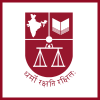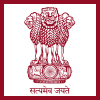Airlines
Airlines
In the previous three years, the aviation industry as a whole has seen record-breaking air traffic as a result of increased airline competition to draw more passengers by offering discounts, deals, or miles or by providing additional air services. According to official data and sources, the passenger air traffic in India’s civil aviation sector for the years 2017–18 consisted of 183.9 million people, while the cargo air traffic was more than 22.1 lakh metric tonnes.
The key regulatory bodies for this sector include:
- Directorate General of Civil Aviation (DGCA) which oversees air transport services, air safety, and airworthiness standards, enforces civil aviation laws.
- Airports Authority of India (AAI) which develops, modernises, cares for, and oversees civil aviation infrastructure on the ground and in Indian airspace.
- Airport Economic Regulatory Authority (or AERA) which sets the tariff for aviation services and passenger service fees to keep track of performance requirements for service quality, continuity, and dependability.
- Bureau of Civil Aviation Security (BCAS), which India has ratified, and ensures that aviation security regulations adhere to national and international duties and air safety treaties.
Grounds for complaint
- Cancellation /Rescheduling of Flights /Delays are a normal practice.
- Poor responses while enquiring on phones.
- Misinformation provided by Airlines staff when called on phones.
- Promised services are not provided.
- Long procedure in getting refund or even denial of refund.
- Denying boarding to the passengers having valid tickets and reported at proper check in time at the last moment due to overbooking or some unknown reasons.
- Misleading advertisement that invites passengers for free travel.
- Misinformation on confirmed booking.
- Unfriendly terms and conditions framed by the private airlines which caused discomfort to the passengers.
- Loss of baggage for which compensations are not paid or when paid it is very less.
- Pilferage of baggage.
- No proper guidance when the passengers are in harness.
- Misbehavior at the counter.
- Minor faults in booking through airlines/agents net may cost dearer to the passenger.
- Data breach by the Airlines company.
When are complaints not accepted?
There are various situations which might cause the complaint to be rejected. These include situations where the consumer is unable to file an appeal against an order within a period of three months, where the complaint is based on a frivolous cause of action, where the complaint falls outside the jurisdiction of the authority approached, and when the complaint has been filed under wrong sections of the act, and other such situations. This requires careful reading of all acts and regulations.
Complaint samples: DCDRC format, SCDRC format, NCDRC format
Complaint Redressal
The consumer must first reach the service provider through the customer care of the particular airlines. If the response has been unsatisfactory, the customer may reach out to the following:
1. Public grievance, Ministry of Civil Aviation
2. Integrated Grievance Redressal Mechanism (INGRAM)
3. Airport Economic Regulatory Authority Appellate Tribunal
4.Central Consumer Protection Authority
5. Any other appropriate judicial or quasi-judicial body:
The complainant is free to take the service provider to a court or any other suitable venue (judicial or quasi-judicial). The proceedings in consumer commissions are not mired by the niceties of procedure, allowing the complainant to file a complaint for himself. As a consumer, the aggrieved party can take the service provider to the appropriate consumer commission, based on the pecuniary and territorial jurisdiction. The jurisdictions of the various consumer commissions are as follows-
a) District Commission: The aggrieved consumer can reach out to the District Commission under section 34 of the CPA, 2019, which provides that the district commission shall entertain matters where the value of the goods or services paid as consideration does not exceed more than one crore rupees.
b) State Commission: In cases where the value of the goods or services paid as consideration is more than one crore, but less than 10 crores, the consumer can approach the State Commission. Moreover, in cases of unfair contracts, the State Commission has original jurisdiction and the consumer can be directly approached. An appeal against the order of the District Commission can also be made under section 47 of the CPA, 2019.
c) National Commission: The National Commission can entertain matters where the value of goods or services paid as consideration exceeds 10 crores. Section 58 also provides that complaints against unfair contracts can be entertained by NCDRC when the amount of value paid exceeds 10 crores. The NCDRC also has appellate jurisdiction against the orders of any State Commission and Central Authority.
Moreover, it must also be kept in mind that section 100 of the CPA, 2019 provides that the remedy under CPA is in addition and not in derogation of other available remedies.Another remedy available to consumers is mediation. Chapter 5 of the Consumer Protection Act provides for establishing mediation cells and resolving consumer complaints using mediation.
Important regulations/guidelines:
- All acts can be accessed here: Ministry of Civil Aviation: Acts
- Requirements for Grant of Operating Authorization to Foreign Airlines Under Bilateral Air Services Agreement
- AAI (Ground Handling Services) Regulations, 2018
- Aircraft (Investigation of Accidents and Incidents) Rules, 2017
- Voluntary Safety Reporting System
- Civil Aviation Requirements (CARs) issued by the DGCA
- International Civil Aviation Organization (ICAO)
- Safety and Standards and Recommended Practices (“SARPs”) (India follows the ICAO guidelines on SARP.)
India is party to the following conventions: Warsaw Convention (1929), the Hague Protocol (1955), the Montreal Convention (1999) and the Cape Town Convention.
Landmark Judgments:
- Station Manager, Air India, Aizawl v. Dr. K. Vanlalzami D/o K. Lalthanmawia – The airline was held negligent in providing service to the Complainant, for which, they were liable to pay suitable compensation.
- Trans Mediterranean Airways v. Universal Exports and Anr. – The National Commission had no legal problems exercising its authority since, for the purposes of Rule 29 of the Second Schedule to the CPA and the Warsaw Convention, it was regarded as a court located on the territory of the High Contracting Party. Accordingly, in light of CPA and Warsaw Convention requirements, the National Commission under CPA has the authority to consider and rule on complaints made by consignors seeking reimbursement for a carrier’s lack of service.
- Sri Dibakar Bhattacharjee v. The Airport Director, Airport Authority of India, Air India (Airport Office) and ors. – The Commission concluded that the luggage of the complainants was lost, a fact that cannot be disputed, and that as it was handled by OP airline employees, the company cannot escape its responsibility in the situation. The Commission concluded that the complainants had significant financial loss as well as great stress and mental anguish from having to arrange for the required garments.
- Air France v. O.P. Srivastava and Ors. – The court ruled that airlines must place strict restrictions on ticket cancellations rather than arbitrarily allowing overbooking since doing so could result in the emergence of unfair business practices with the intention of making a profit.

